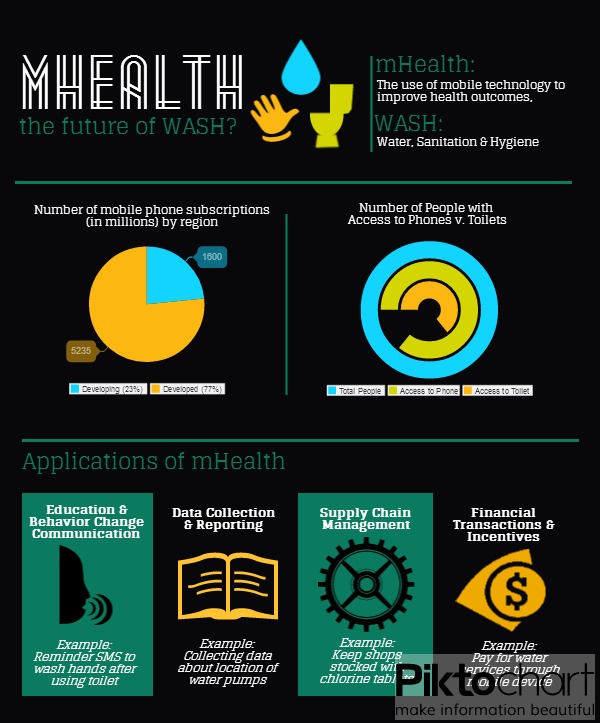When we last featured TC309: mHealth alumna, Lauren Bailey, on the TechChange blog, we shared her mHealth final project on the potential of WASH (water, sanitation, and hygiene) in using mobiles for public health. Since then, Lauren has landed a position at International Medical Corps as a Monitoring and Evaluation Assistant, where she works with colleagues who are also TechChange mHealth alumni.
This week, we visited Lauren at the International Medical Corps office in Washington, DC where she shared her latest updates on her mHealth career.
What did you find useful from your TechChange course, mHealth: Mobiles for Public Health?
The TechChange mHealth online course gave me a solid background in the use of mobile phones for public health. I became familiar with different organizations and companies that develop or use mHealth programs, and I feel comfortable talking knowledgeably about mHealth with others.
What impact has TC309 and TechChange had on you and your career?
1. Connecting to future employers
I applied for a position at International Medical Corps (IMC) that had an mHealth component in the job description. During the interview process, I connected with my now supervisor and colleague who were both in the middle of taking the same TechChange mHealth course I had taken 6 months earlier. They were both impressed with what they had been learning in the course, and I feel that the TechChange connection was one of the reasons I was offered a temporary position at the organization. I have been an active member of the organization’s mHealth interest group.
During my first week at IMC, my supervisor forwarded me the most recent WASHplus newsletter as a resource for a project I was working on. To my surprise, my TechChange project was featured in the newsletter! She was very impressed that the course had led to this feature in the newsletter.
2. Connecting to like-minded professionals passionate about WASH
I am thankful to have met many motivated and interesting TechChange colleagues and alumni. I reached out to a fellow TechChange alumnus with whom I had connected during the course. He and I share a love for water, sanitation, and hygiene (WASH). Talking with him gave me great insight on his work in WASH and gave me ideas for future work in the sector.
3. Crowdsourcing knowledge for primary research
Recently, I have used the TechChange Alumni group on LinkedIn to crowdsource information on the use of mHealth for behavior change. The network is full of accomplished and gracious people with diverse backgrounds willing to help others learn. My final course project, which coincided with a master level global environmental health course, served as a stepping stone to the qualitative research I am currently conducting on the use of mHealth for behavior change communication.
What advice would you give to students taking TC309 or any TC course?
1. Pay extra attention to Alain Labrique, one of the top speakers in the course. He gives an excellent introduction to the mHealth landscape. His lecture and research is part of the motivation behind some of my interests in the different uses of mHealth.
2. Be diligent and set aside time every day to log into the course — even if you can only spend 20 minutes. Try to attend live events and make sure to ask questions that enhance the discussion.
3. Make connections. Be sure to reach out to classmates and find out more about their backgrounds and career paths. It’s great to have connections from all across the globe!
About Lauren Bailey
Lauren Bailey is in the midst of completing her Master of Public Health degree in Global Environmental Health at George Washington University where she is conducting qualitative research on the use of mHealth for behavior change in the water, sanitation, and hygiene (WASH) sector. Lauren’s passion for global health began five years ago when she defended her undergraduate thesis that used malaria as a case study for how health impacts poverty in Sub-Saharan Africa. She acquired an interest for mobile health upon entering her graduate program where she learned more about the different uses of mobile phones for health purposes. Lauren originally hails from Massachusetts and is an avid baseball fan.
Are you also interested in mobile phones for public health? Join us for our upcoming Mobiles for International Development and mHealth online courses here.


